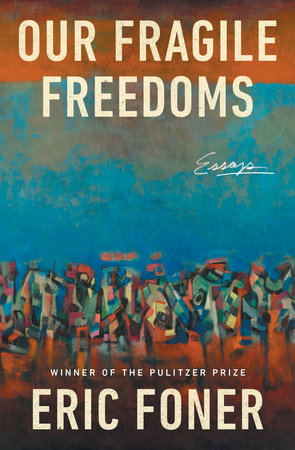The only duty we owe to history, Oscar Wilde once remarked, is to rewrite it. New questions, new information, and the changing status of various groups of Americans will inevitably produce new historical insights. So will the changing composition of the historical profession. During my college and graduate student years, I was never once taught by a female or non-white historian—something all but impossible today. I look back with pride on the fact that the 75 or so historians whose dissertations I supervised during my own teaching career included numerous members of previously underrepresented groups, notably women and non-white men. Inevitably, changes in the historical profession have altered the ways we think about the American past.
Historical interpretation both reflects and helps to shape the politics of the moment in which the historian is writing. For decades, the Dunning School, named for Columbia University professor William A. Dunning and his students, dominated historical writing on Reconstruction. In their account, the post–Civil War era was a time of misgovernment caused by the supposedly misguided decision to grant political rights to Black men. The incapacity of Black people was a foundational assumption of historical scholarship at a time when the study of the past was becoming professionalized. The South’s Jim Crow order required a historical foundation to support its claim to legitimacy—and for much of the 20th century, historians played a major role in providing it.
Today, the writing and teaching of history has been drawn into the vortex of the culture wars. Why is history so controversial? The French historian Ernest Renan had an answer. Historical analysis, he famously wrote in the late 19th century, has always been linked to broader ideas about the nation-state. National consciousness, or at least the sense of unity and patriotic pride that accompanies nation-building, he argued, rests in part on historical mythology. Indeed, Renan wrote, because “historical error” plays a significant role in the creation of a national consciousness, advances in the field of history—including the replacement of myth by accurate accounts of the past—are often seen as “a threat to the nation.”
Over a century ago, the historian Carl Becker wrote that history is what the present chooses to remember about the past. We see this in recently enacted state laws barring the teaching of controversial or disturbing ideas and mandating a celebration of American history that gives short shrift to the less-than-praiseworthy realities of our past. These laws reflect our current cultural and political polarization, with each side embracing its own concept of what the United States has been, is, and should be.
